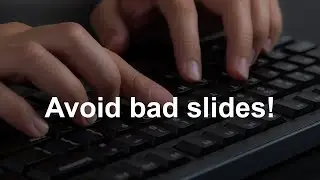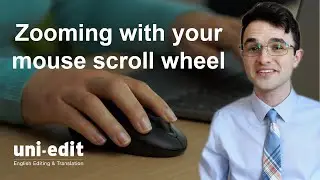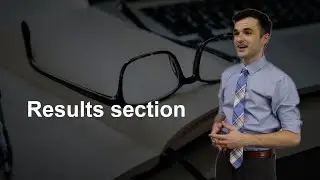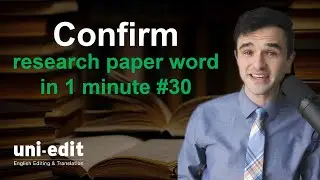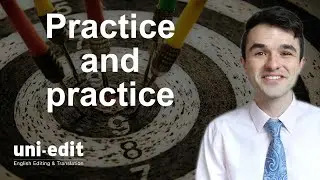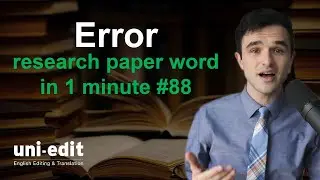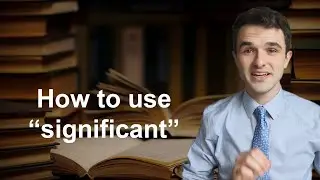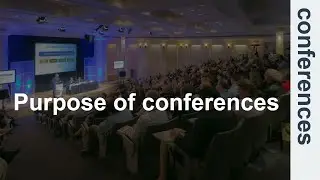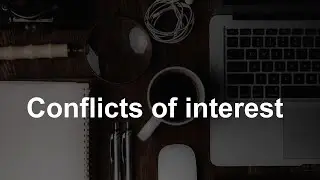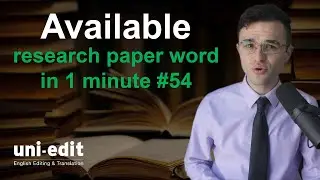How to give the perfect conference presentation
Practicing is vital for giving an amazing conference presentation. In this video, we give you the best tips and tricks to practice effectively.
Watch all of our videos on academic conferences: https://bit.ly/3FU7UUg
===== Transcript Highlights =====
When you practice a lot and you are well prepared to give your conference presentation, you’re going to increase clarity - and that should be your number one goal when talking to an audience. If they can’t understand you, you have failed as a presenter and we don’t want that. And with good practice comes good flow. Do you transition into new ideas solidly fluently? Does the order of your presentation make sense? Then engagement, is your presentation interesting? Are audience members following along? Do they want to keep listening to you? And intern if you can if you can do all of these well it’s going to make your presentation more memorable. And a memorable presentation will help you in the long term because colleagues and other people at the presentation will recognize you in the crowd later in the conference when they see you.
Ok now let’s keep talking about how practicing is going to help you. First off, it’s going to help reduce nerves. If you get up on stage and you know your presentation because you’ve practiced it dozens and dozens of times you’re not gonna be as nervous as if you were presenting it for the first time. The next part is that I can help improve muscle memory. If you need to make a certain gesture in your presentation, doing it in advance is going to help your body remember what you need to do. You’re going to remember how to stand, where to look, how to walk around the room, anything. Another big benefit is that you’re going to get improved confidence in your presentation, and in yourself, and you’re going to feel a little more creative because when you’ve given a presentation many times you find new and better ways to present the same information.
You’re also going to be able to find little mistakes in your presentation. And all of these together make improvements to the entire presentation, to your facial expressions, to your speed, to your tone, to your confidence, and your nervousness.
Really 1 to 2 hours a day might be needed, for 1 to 2 weeks in advance. That might sound like a lot, but when you go up on stage you are supposed to be an expert and it takes a long time to be an expert. For English learners, we really recommend that you research correct pronunciation. You can do this on Google or by asking a friend. Correctly pronouncing the difficult words in your field is going to increase confidence in your audience when watching your presentation. Also when you’re practicing, do your best to look away from your slides. And lastly, we want you to practice everything. Practice your gestures to the crowd, practice making eye contact with different parts of the crowd, practice expressions that are engaging and relevant to the content, practice tones. If something is serious, you need to get a little more serious, but something is happy, go ahead! Go for it. You can also practice pacing. Make sure that you don’t speak too quickly. But also make sure that you don’t speak too slowly.
Jokes are hugely important! When the audience is laughing they’re more engaged, and when they’re more engaged they listen to what you say. It’s not a bad idea to work jokes into your presentation. Ok now we’re going to move on the feedback. To start, you can get feedback from your friends and family. But then we recommend going to colleagues and professionals in your field. Good feedback questions include “was I talking too fast?” “Was my information clear and concise?” And maybe, “could you read my charts?”
A dress rehearsal is when you put on business clothes you go to a location with a projector and you practice giving a presentation. Practice walking around. practice or gestures, practice jokes. This is a part of your visualization routine. And lastly, it’s really important that you find a stage and a projector.
=====UNI-EDIT SERVICES FOR AUTHORS=====
University English Editing & Translation service: https://uni-edit.net
Uni-edit specializes in language services for academics and researchers.
Research paper English editing: https://www.uni-edit.net/english-editing
Thesis and dissertation editing: https://www.uni-edit.net/phd-masters
School & job applications editing: https://www.uni-edit.net/School-appli...
Academic translation: https://www.uni-edit.net/translation
One-on-one academic English lessons: https://www.uni-edit.net/lessons
Email: [email protected]
CON645






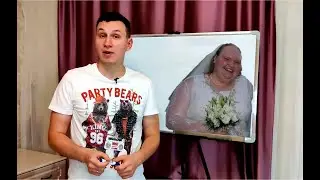
![[KOKOMI (Asriel)] Senkyou no Igreja [english/romaji lyrics] +mp3](https://images.mixrolikus.cc/video/PPRzUCFHDKA)

